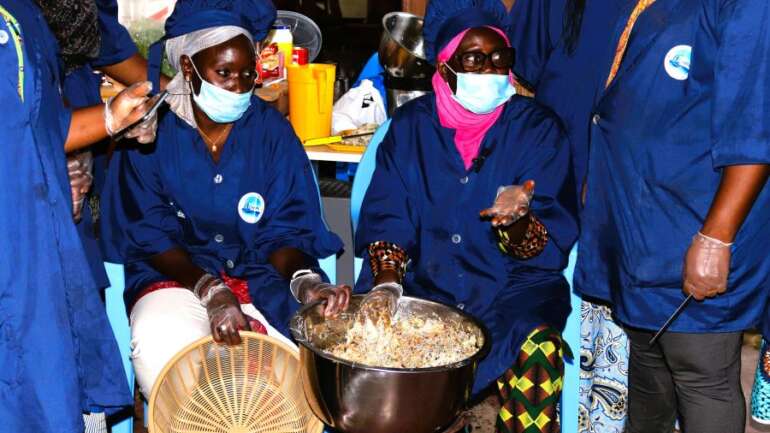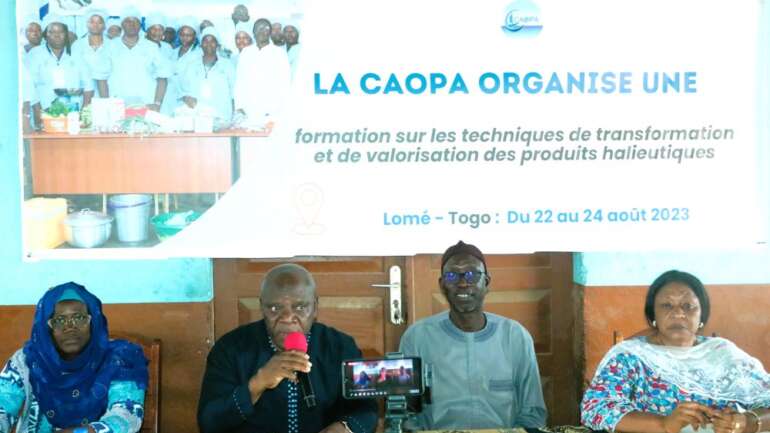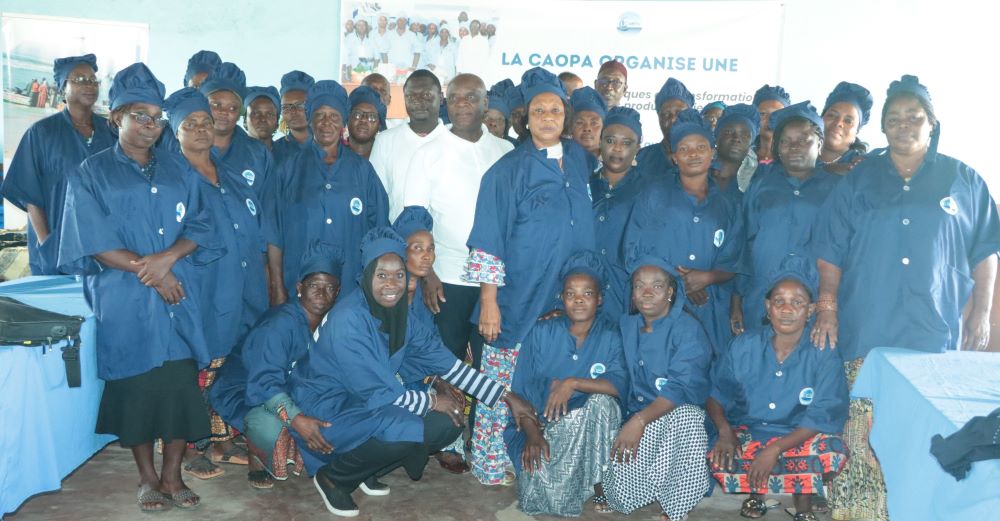The African Confederation of Professional Artisanal Fishing Organizations (CAOPA), in partnership with financial support from Pain pour le Monde, is organizing a training workshop from August 22 to 24, 2023, in Lomé, Togo. This event marks a significant step in empowering women engaged in Togo’s artisanal fishing industry, focusing on techniques for processing and valorizing fishery products.
Women in Small-Scale Fisheries in Togo
 At the heart of the Togolese fishery industry, women play a vital role. They represent a substantial portion of the workforce in artisanal fishing, thus contributing significantly to the country’s economy. However, despite their contributions, women in artisanal fishing have often faced significant challenges, including limited access to the knowledge and skills required for processing and valorizing their products.
At the heart of the Togolese fishery industry, women play a vital role. They represent a substantial portion of the workforce in artisanal fishing, thus contributing significantly to the country’s economy. However, despite their contributions, women in artisanal fishing have often faced significant challenges, including limited access to the knowledge and skills required for processing and valorizing their products.
To address these challenges, CAOPA has committed to supporting a sample of 30 female professionals, aiming to provide them with practical skills in fishery product processing and valorization.
Challenges in Processing and Valorization of Fishery Products
Processing fishery products is crucial on multiple fronts. It not only extends the shelf life of products but also adds value, translating into higher incomes for female processors. However, challenges abound. Togo’s artisanal fisherwomen often encounter rudimentary processing techniques, limited market access, and product quality issues.
The Training Workshop: Objectives and Participants
 The workshop, funded by “Pain pour le Monde,” seeks to tackle these challenges head-on. It brings together participants from various coastal regions of Togo. Among the objectives of this workshop are:
The workshop, funded by “Pain pour le Monde,” seeks to tackle these challenges head-on. It brings together participants from various coastal regions of Togo. Among the objectives of this workshop are:
– Teaching advanced processing techniques to enhance product quality.
– Raising awareness of food safety and quality standards.
– Exploring marketing strategies and market access.
– Strengthening the confidence and leadership of women in the artisanal fishing sector.
Taught Processing and Valorization Techniques
The workshop offers a range of hands-on training, from selecting fishery raw materials, to cutting and fish preparation techniques, to creating value-added products such as canned fish, smoked products, and marinades. Once acquired, these skills will allow women to diversify their production and access more lucrative markets.
 An essential aspect of this training is sustainability. Participants learn to minimize waste, adhere to fishing quotas, and adopt environmentally-friendly practices, contributing to the preservation of marine resources.
An essential aspect of this training is sustainability. Participants learn to minimize waste, adhere to fishing quotas, and adopt environmentally-friendly practices, contributing to the preservation of marine resources.
Impact on Coastal Communities
Beyond personal benefits, this initiative has the potential to transform Togolese coastal communities. Trained women become agents of change in their villages, sharing their knowledge with other community members. Furthermore, by improving the quality of their products, they can access more profitable markets, stimulating the local economy and enhancing food security.
Challenges and Future Perspectives
While this training workshop represents significant progress, challenges persist. Togo’s artisanal fisherwomen still require financial support and access to adequate infrastructure to fully leverage their acquired skills. Government agencies, NGOs, and the private sector can play a crucial role by offering ongoing support.
The training workshop for women in Togo’s artisanal fishing sector on fishery product processing and valorization techniques is a critical step toward economic and social empowerment in this vital sector. It offers opportunities for sustainable economic growth while contributing to the preservation of marine resources.
For this momentum to continue, it is imperative that different stakeholders continue to collaborate and invest in the future of artisanal fishing actors in Togo.
It’s worth noting that this is the second training of its kind organized by CAOPA, following the one held in May in Cotonou, Benin.


